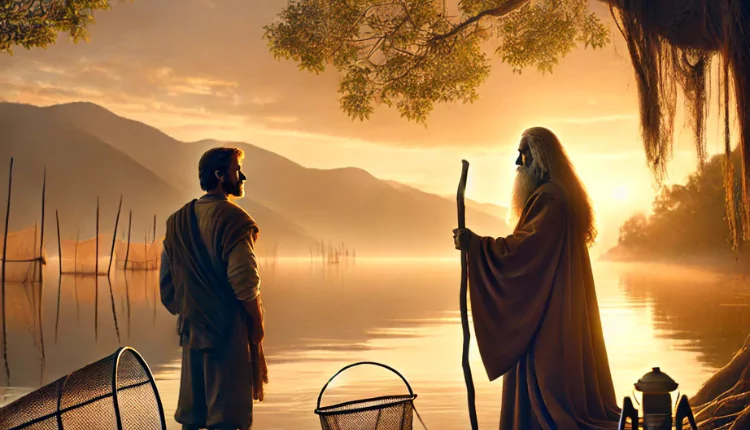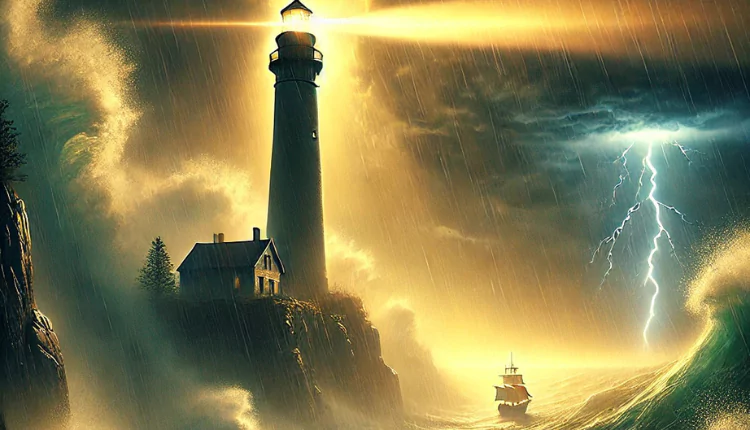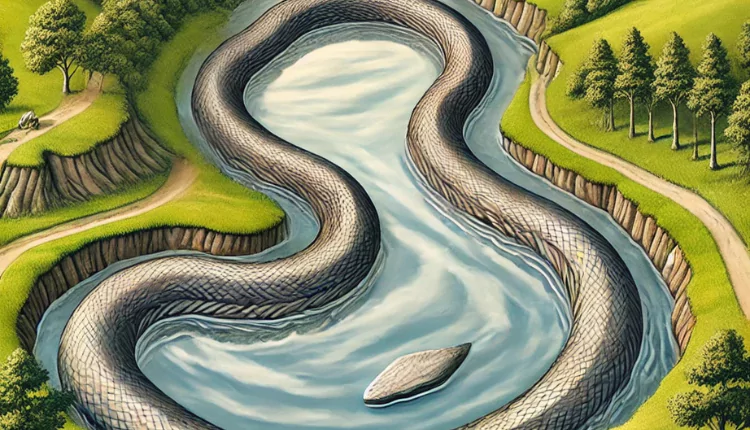There once lived a fisherman named Robert, a man of humble means who toiled by the sea in a small, wind-beaten village. Day after day, before the break of dawn, he would cast his net into the waters and hope the sea would be kind to him; sometimes it was; at others, not so. Yet, Robert never complained, for he had learned from his father, and his father before him, that the sea could not be tamed: “You accept what it bestows and respect what it retains,” they used to say.
One unfortunate summer day, the village faced an ill-fated event: the fish that had always been plentiful in the waters began to disappear, and day after day, Robert and the other fishermen pulled in empty nets. Rumours among the villagers were that a change in tides or a curse by those jealous of the town’s good fortune was to be blamed.
Robert, nonetheless, remained silent because he had no answers – only his net and his patience, so he held on to them.
One particularly harsh afternoon, after hours of fruitless fishing, Robert dragged his net ashore and found a stranger waiting by his small boat. The man was tall, with sharp eyes that seemed to glint like the sun on the waves. His clothes were simple, but there was something regal in the way he stood, as if he were accustomed to being listened to.
“Hard day, isn’t it?” the stranger asked with a slight smile.
Wiping sweat from his brow, Robert nodded. “Although the sea is naturally moody, it’s been like this for weeks now; the fish are gone – or hiding.”
The stranger looked out to the horizon and asked him, “And what do you plan on doing in case the fish do not return?”
Robert was startled by the question. “What can I do? I’m a fisherman. The sea is my life. If the fish are gone, I will wait. I’ve waited before.”
The stranger shook his head slowly. “Is it the sea that sustains you, or is it your patience?”
Robert frowned. “What’s the difference?”
“Ah,” said the stranger, “a man like you might spend his whole life believing that patience is the only virtue. But patience, alone, can starve a man.”
Robert shifted uncomfortably. “What are you suggesting? That I abandon the sea? My family has fished here for generations.”
“I’m suggesting,” said the stranger, “that the world is larger than the sea, you know, and that perhaps the problem is not the fish but the net you cast.”
At this, Robert grew defensive. His net had been mended countless times with careful hands. It was strong, well-crafted. “My net is fine. It has served me well for years.”
The stranger knelt beside Robert’s boat, inspecting the ropes and knots. “It’s true, this net has caught many fish. But only the fish that swim near the surface. What lies deeper, you have never seen.”
Robert, curious despite himself, asked, “And how would a man like me reach deeper waters?”
The stranger stood, his face thoughtful. “There is a lake, not far from here, nestled in the mountains. The waters are clear, and there are fish that have never seen a net. But they swim deep—deeper than any net can reach.”
“Then how would I catch them?”
“Not by using a net,” said the stranger, his eyes shining. “You would use a rod, a mere simple wooden rod, with a line so thin it seems as fragile as a thread. And mind you, it will take more than just patience: skill and the ability to listen to the waters. But one more thing, those who learn this craft never return empty-handed.”
Hearing this, Robert looked down at his calloused hands that were stained by years of working the sea. He thought to himself how foreign the idea was, of using a rod to fish – he thought the concept was laughable. But something in the stranger’s words stirred in him; it was a feeling he hadn’t known in years, not hope exactly, but a hunger for something new and beyond the familiar rhythm of his days.
“And if I fail?” Robert asked quietly.
The stranger smiled again, though this time it was softer, almost kind. “Then you will have failed trying something different, and not from sitting idly, waiting for the sea to change.”
For a long moment, Robert stood in silence, listening to the distant crash of waves against the shore. The sea, his lifelong companion, was vast and deep, yes. But it had also been unchanging. He realized now that his patience had kept him tethered to the shore, waiting for fortune to favour him instead of seeking new ways to survive.
Finally, Robert spoke. “Where is this lake?”
The stranger pointed towards the mountains in the distance, “It’s a two-day journey, but beware, for the road is steep, and the waters cold; few dare make the journey; fewer make it on their first attempt.”
Robert acknowledged with a nod, feeling the weight of the decision before him. However, for the first time in years, he wasn’t afraid of failure; instead, he was only afraid of staying the same.
And so he decided: “I’ll go,” he said, his voice firm.
The stranger nodded approvingly, “Good. But remember, the fish at the bottom, unlike those at the surface, don’t come to you; you meet them where they are.” And with that, the stranger turned and walked away, his figure soon blending into the landscape.
Robert was now standing by himself, but he didn’t feel alone, not really, for he felt the stirrings of something within himself. It was a quiet resolve, a determination, a will to venture into deeper waters – both in the world and within his own heart.
Thus, Robert set off towards the mountains, leaving behind the familiar sea, knowing that even if the journey was long and uncertain, it was one worth taking.
Sometimes, waiting for change is not enough. To truly grow, we must seek new challenges, even if it means venturing beyond the familiar.
Searching for short stories that teach values in the simplest way?
Explore the heartwarming world of Moral Stories on Storyious, where each tale delivers a powerful message through relatable characters and everyday moments. These short moral stories are designed to inspire young minds and guide them toward kindness, honesty, and empathy. Whether it’s a clever animal, a thoughtful child, or a surprising twist, each story ends with a meaningful takeaway and is perfect for parents, teachers, or anyone looking to share life’s lessons through storytelling. So, start reading today and discover the power of simple stories with strong morals.







Comments